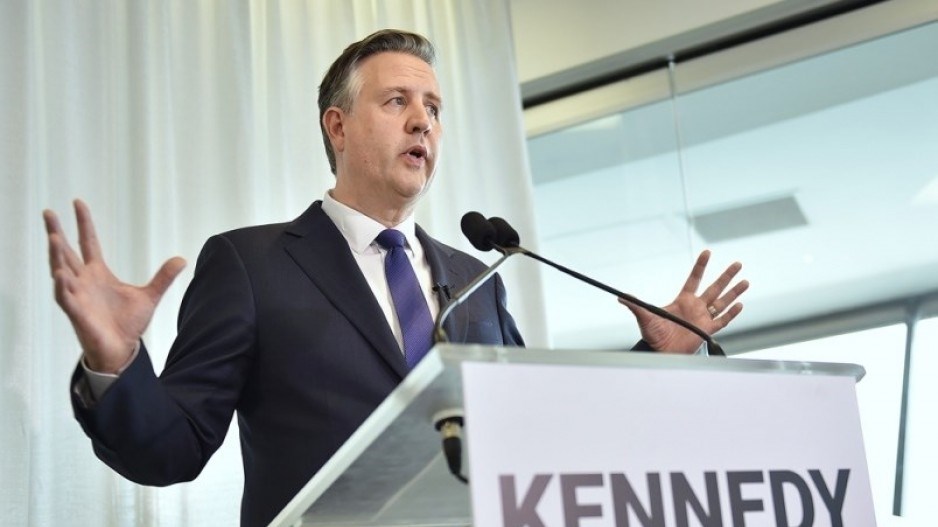The Chinese government is scolding Vancouver Mayor Kennedy Stewart again.
This time, it comes after a Chinese language newspaper quoted Stewart for supporting U.S. House Speaker Nancy Pelosi’s controversial visit to Taiwan.
Last fall, then-Consul-General Tong Xiaoling publicly berated Stewart for considering a friendship city relationship with Taiwan’s second-biggest city, Kaohsiung.
Tong finished an almost five-year term at the end of July. But, last week, an unnamed spokesperson at the People’s Republic of China consulate in Vancouver called Stewart’s remarks to Sing Tao Daily on Aug. 3 “ridiculous and unacceptable.”
In the story, translated to English, Stewart said “[Pelosi] is a politician who has long supported democratic, free human rights. Her decision is right.” He also told a reporter that he wants to visit Taiwan.
A statement on the consulate’s Chinese website told Stewart to “be cautious in his words and deeds on Taiwan-related issues, and to focus on solving the livelihood and security of [Vancouver] citizens, especially in eliminating crimes of hatred and discrimination against Asians.”
“Don’t waste your time to win fire for Pelosi's visit to Taiwan, China, take advantage of the Taiwan issue to gain personal political interests, and don't play with fire on the Taiwan issue and send wrong signals to the separatist forces of ‘Taiwan independence’, otherwise those who play with fire will burn themselves.”
The latter phrase echoed Chairman Xi Jinping’s words in a July 28 call with U.S. President Joe Biden, who has pledged to defend Taiwan. Pelosi’s visit triggered live fire war games by China’s navy and air force off Taiwan’s coast and in Taiwanese airspace. China also sanctioned Taiwanese businesses and stopped climate change talks with the U.S. Foreign ministers of G-7 countries, including Canada, criticized China for its “unnecessary escalation.”
Stewart said in 2021 that he would not meet with Chinese government officials after Beijing sanctioned several Members of Parliament, including friend and Conservative foreign affairs critic Michael Chong. China’s move was in retaliation for Canadian government sanctions several senior officials after the House of Commons declared China is committing genocide against Uyghur Muslims.
In the Sing Tao story, Stewart said he is critical of the Chinese government, but has no prejudice toward Chinese people and treats all citizens equally. He also said he would be willing to talk to the mayor of Guangzhou, Vancouver’s Chinese sister city. “I just choose not to meet with Chinese government officials,” he said.
Stewart’s office has not responded for comment.
At the end of May, Canadian Security Intelligence Service agents warned Stewart that the Chinese government could meddle in the Oct. 15 civic election.
The Chinese Communist Party maintains an official program called the United Front Work Department which aims to influence foreign countries via state-sponsored disinformation, hacking, spying, co-opting of politicians and intimidation of the Chinese diaspora.
CSIS director David Vigneault has pinpointed the governments of Russia and China as primary threats to Canada’s national security.
“Efforts by foreign states to target politicians, political parties, and electoral processes in order to covertly influence Canadian public policy, public opinion and ultimately undermine our democracy and democratic processes represent some of the most paramount concerns,” Vigneault said in a 2021 speech.
The United Nations has recognized only Mainland China since 1971 and Mainland China considers Taiwan a rebel province. Xi has threatened to use force to take control of Taiwan, an independent, democratic country with a free press and 23 million people living on a land mass similar in size to Vancouver Island.

.jpg;w=120;h=80;mode=crop)

